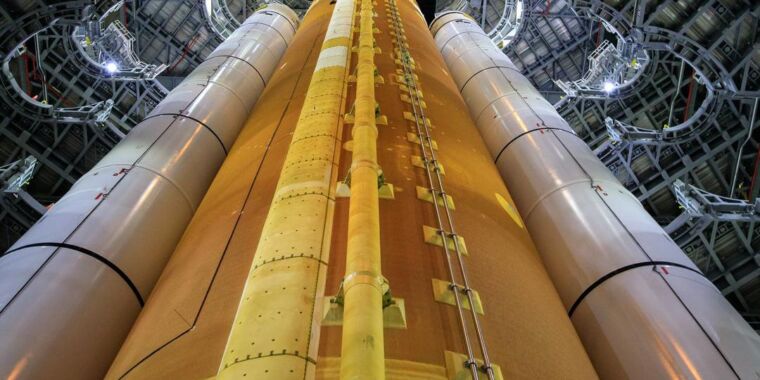He (rightly) sees the commercial aspect of space technology to be a deadend, but nasa is spending a huge amount of time and effort working towards enabling it in favour of doing nasa things.
I take issue with commercial being a dead end in space. Not only has commercial spaceflight been VERY successful for NASA, it has saved huge amounts of money over what Griffin was proposing instead. Griffin was advocating for the Constellation program. Lets take just a piece of that where commercial spaceflight is there instead: flying crew to the ISS which we do two times per year.
The Constellation program would have used the Ares I rocket and the Orion Crew capsule. The estimated flight cost of this configuration was about $1.1 billion together for two flights. source
The commercial option used instead is the SpaceX Falcon 9 rocket with the Crew Dragon capsule. The actual flight cost is $176 for the same two flights per year. source
For the cost of ONE year of NASA Constellation flights to the ISS, the commercial solution pays for 6 1/4 years of flights instead.
how is the “commercial” avenue supposed to make profit if nasa isn’t funding it. and if it can’t, isn’t it just a government program?
the dead end of commercial space is that it can only function as a factor of government work. it’s not a viable industry by itself.
you can see this tale play out time and time again in other industries that have had the same problem, it doesn’t end well, it ends badly.
also you don’t need to do the big text
how is the “commercial” avenue supposed to make profit if nasa isn’t funding it. and if it can’t, isn’t it just a government program?
NASA is not the only entity that send things into orbit.
the dead end of commercial space is that it can only function as a factor of government work. it’s not a viable industry by itself.
SpaceX does not seems to only rely on government orders.
True, NASA helped (well, it is an understatment) SpaceX, but now it could capitalize on it if the costs are the one @partial_accumen@lemmy.world pointed out.
the dead end of commercial space is that it can only function as a factor of government work. it’s not a viable industry by itself.
The alternative to this LEO space work is that taxpayers pay 6.25 times as much for the same service. Where is the logic in that?
you can see this tale play out time and time again in other industries that have had the same problem, it doesn’t end well, it ends badly.
I disagree with your assessment that it is an inevitability. However, lets assume for a moment you’re right and it ends in bankruptcy for SpaceX. In the time it will have operated it will have:
- launched over 300 times
- proven rocket reusability
- drastically lowered the cost of spaceflight around the globe from all providers
- created and deployed a global constellation of high speed and low latency internet access satellites giving affordable access to many corners of the globe previously unserved
- put an additional 42 human into orbit
If commercial space company SpaceX went out of business tomorrow, we’d still be better off than had NASA ever contracted with them.
also you don’t need to do the big text
Thank you for sharing your opinion on that.


